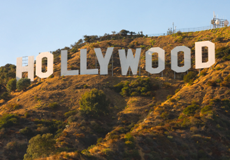VFX Industry Plans Oscar Demonstration to Protest Offshoring
February 27, 2014
PandoDaily and TheWrap are among those reporting that visual effects industry workers are planning a demonstration outside the Dolby Theatre in Hollywood during Sunday’s Academy Awards to protest ongoing efforts to send post-production work overseas. The group believes that offshoring has led to a slow collapse of the VFX industry in the U.S. While there was little the effects industry could do about this in the past, it may now be armed with a new weapon based on the MPAA’s attempts to combat Internet piracy.
“The fight between the studios and the tech wizards who actually make movies possible is not new,” reports Pando. “Encouraged by ever-rising subsidies available overseas, the movie industry has for years been shipping millions of dollars of digital work outside the U.S. This kind of work is vulnerable to such offshoring because it can be done anywhere, even if logistics demand that much of the physical shooting remain in New York or Los Angeles.”
 A number of American visual effects houses have shuttered in recent years as work has shifted to other countries, such as Canada and Great Britain, that offer significant tax breaks.
A number of American visual effects houses have shuttered in recent years as work has shifted to other countries, such as Canada and Great Britain, that offer significant tax breaks.
“The amazing irony is that while 47 of the top 50 films of all time are visual effects driven and billions of dollars of profits are generated yearly, the actual people who create the work are becoming an endangered species in California,” wrote Eric Roth, executive director of the Visual Effects Society, in the group’s Open Letter — Call To Action.
Daniel Lay, animator and blogger behind VFX Soldier, enlisted a Washington law firm to explore legal options to fight the MPAA.
“In a twist that seems crafted by professional scriptwriters, they discovered a legal document submitted by the MPAA just two weeks ago, when the organization decided to weigh in on an seemingly inconsequential International Trade Commission case involving 3D printers,” notes Pando. “In that filing… the MPAA argued that digital goods should be considered imports and therefore subject to the stringent copyright protections the big studios so desperately want.”
Lay’s attorneys suggest that the MPAA’s position has implications for offshored post-production workers (if movies are recognized as imports then so can post-production).
“In other words,” Pando explains, “emboldened by the MPAA’s filing, the visual effects workers are now in a position to use the big studios’ own arguments to compel the government to slap trade tariffs on those studios’ own productions in high-subsidy countries.”
Last year, some 400 protestors gathered outside the Oscars after Rhythm & Hues had filed for bankruptcy. This year’s VFX March in March protest, organized by Lay, is aiming for a larger turnout.
“We’re trying to focus on the destructive impact of the subsidies race,” Lay told TheWrap. “We want to broaden it to include musicians and grips and others who are being drastically effected. It’s great that there’s an Oscar party going on, but a lot of us are being hurt by this subsidy.”

No Comments Yet
You can be the first to comment!
Leave a comment
You must be logged in to post a comment.